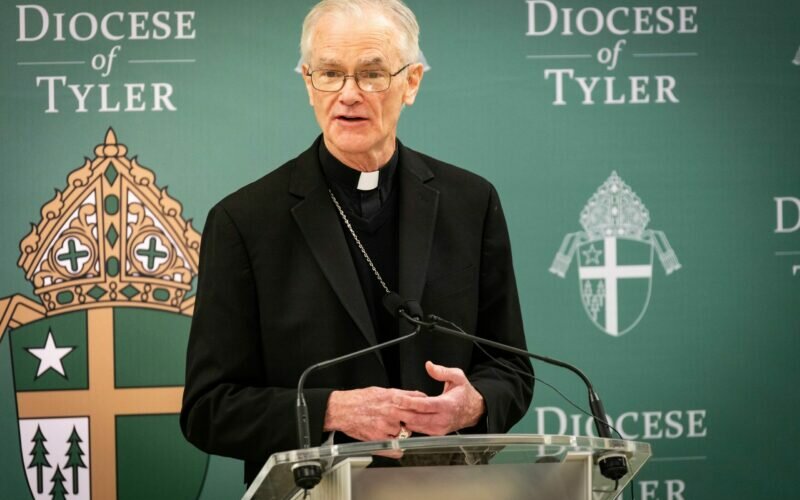Alternate reading: John 12:24-26
GOSPEL READING: Matthew 18:15-20
15 “If your brother sins against you, go and tell him his fault, between you and him alone. If he listens to you, you have gained your brother. 16 But if he does not listen, take one or two others along with you, that every word may be confirmed by the evidence of two or three witnesses. 17 If he refuses to listen to them, tell it to the church; and if he refuses to listen even to the church, let him be to you as a Gentile and a tax collector. 18 Truly, I say to you, whatever you bind on earth shall be bound in heaven, and whatever you loose on earth shall be loosed in heaven. 19 Again I say to you, if two of you agree on earth about anything they ask, it will be done for them by my Father in heaven. 20 For where two or three are gathered in my name, there am I in the midst of them.”
Meditation: What’s the best way to repair a damaged relationship? Jesus offers his disciples spiritual freedom and power for restoring broken or injured relationships.
Don’t brood over an offense – speak directly and privately
What can we learn from Jesus’ instructions about how to mend a damaged relationship (Matthew 18:15-20)? If you feel you have been wronged by someone, Jesus says the first step is to speak directly but privately to the individual who has done the harm. One of the worst things we can do is brood over our grievance. This can poison our mind and heart and make it more difficult to go directly to the person who caused the damage.
Seek the help of wise Christians
If we truly want to settle a difference with someone, we need to do it face to face. If this fails in its purpose, then the second step is to bring another person or persons, someone who is wise and gracious rather than someone who is hot-tempered or judgmental. The goal is not so much to put the offender on trial, but to persuade the offender to see the wrong and to be reconciled. And if this fails, then we must still not give up, but seek the help of the Christian community. Note the emphasis here is on restoring a broken relationship by seeking the help of other Christians who hopefully will pray and seek a solution for reconciliation based on Christian love and wisdom, rather than relying on coercive force or threat of legal action, such as a lawsuit.
Pray for the offender – for healing and reconciliation
Lastly, if even the Christian community fails to bring about reconciliation, what must we do? Jesus seems to say that we have the right to abandon stubborn and obdurate offenders and treat them like social outcasts. The tax-collectors and Gentiles were regarded as “unclean” by the religious-minded Jews and they resorted to shunning them. However we know from the Gospel accounts that Jesus often had fellowship with tax-collectors (as well as other public sinners), ate with them, and even praised them at times! Jesus refuses no one who is open to receive pardon, healing, and restoration.
Set no obstacle in seeking to heal your brother’s wound
When you are offended, are you willing to put aside your own grievance and injury in order to help your brother’s wound? The Lord Jesus wants to set us free from resentment, ill-will, and an unwillingness to forgive. The love of Christ both purifies and sets us free to do good to all – even those who cause us grief. The call to accountability for what we have done and have failed to do is inevitable and we can’t escape it, both in this life and at the day of judgment when the Lord Jesus will return. But while we have the opportunity today, we must not give up on praying for those who cause us offense. With God’s help we must seek to make every effort to win them with the grace and power of God’s healing love and wisdom. Do you tolerate broken relationships or do you seek to repair them as God gives you the opportunity to mend and restore what is broken?
Lord Jesus, make me an instrument of your healing love and peace. Give me wisdom and courage to bring your healing love and saving truth to those in need of healing and restoration.
Psalm 66:1-5, 8, 16-17
1 Make a joyful noise to God, all the earth;
2 sing the glory of his name; give to him glorious praise!
3 Say to God, “How awesome are your deeds! So great is your power that your enemies cringe before you.
4 All the earth worships you; they sing praises to you, sing praises to your name.” [Selah]
5 Come and see what God has done: he is awesome in his deeds among men.
8 Bless our God, O peoples, let the sound of his praise be heard
16 Come and hear, all you who fear God, and I will tell what he has done for me.
17 I cried aloud to him, and he was extolled with my tongue.
Daily Quote from the Early Church Fathers: If someone has done you injury, by Augustine of Hippo (354-430 AD)
“If someone has done you injury and you have suffered, what should be done? You have heard the answer already in today’s scripture: ‘If your brother sins against you, go and tell him his fault, between you and him alone.’ If you fail to do so, you are worse than he is. He has done someone harm, and by doing harm he has stricken himself with a grievous wound. Will you then completely disregard your brother’s wound? Will you simply watch him stumble and fall down? Will you disregard his predicament? If so, you are worse in your silence than he in his abuse. Therefore, when any one sins against us, let us take great care, but not merely for ourselves. For it is a glorious thing to forget injuries. Just set aside your own injury, but do not neglect your brother’s wound. Therefore ‘go and tell him his fault, between you and him alone,’ intent upon his amendment but sparing his sense of shame. For it might happen that through defensiveness he will begin to justify his sin, and so you will have inadvertently nudged him still closer toward the very behavior you desire to amend. Therefore ‘tell him his fault between you and him alone. If he listens to you, you have gained your brother,’ because he might have been lost, had you not spoken with him. ” (excerpt from Sermon 82.7)







